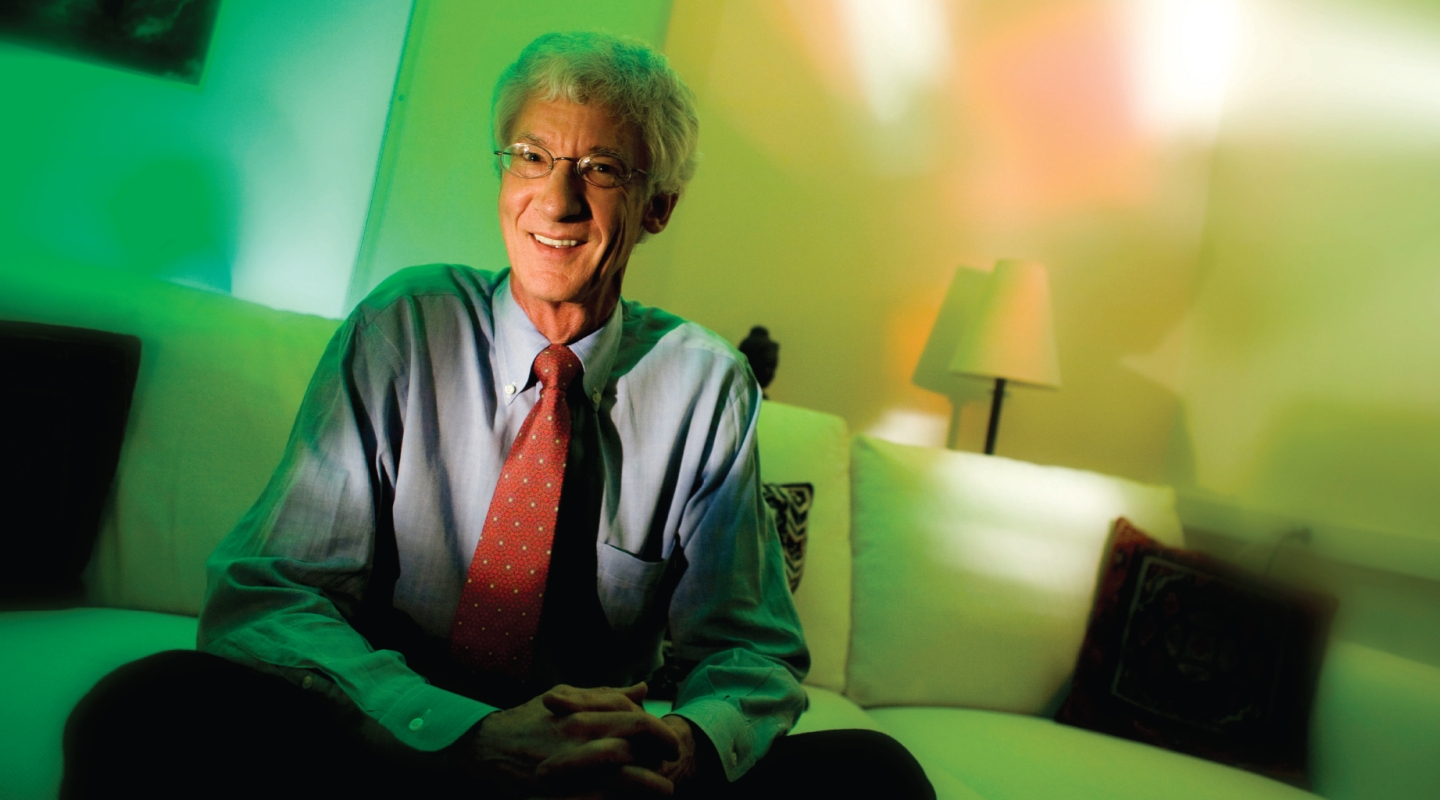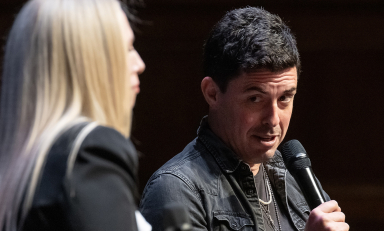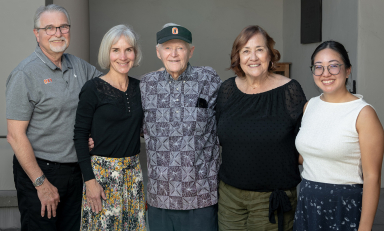The Johns Hopkins School of Medicine professor, who died in October, was lauded for his ‘mind-blowing’ studies of psychedelics. But Barry Sears ’68 remembers his ‘wicked sense of humor’
After a routine colonoscopy in November 2021 led to a diagnosis of late-stage colon cancer, Dr. Roland Griffiths ’68—a pioneer in the study of psychedelic and mood-altering drugs—channeled his energies toward the creation of an endowed professorship at Johns Hopkins University to continue his research with psychedelic substances “to advance understanding of well-being and spirituality in the service of human flourishing for generations to come,” as he put it. The fund raised more than $24 million prior to Griffiths’ death on October 16 at his home in Baltimore.
Following his passing, Occidental magazine reached out to Dr. Barry Sears ’68 to look back on his longtime friendship with Griffiths. Sears responded with the following:
It was with great personal sadness that I heard of the passing of my great friend, Roland Griffiths ’68. Roland was my senior year roommate at Oxy, the best man at my wedding, and a lifelong sounding board to discuss the essential things in life.
After reading Roland’s obituary in The New York Times, I asked myself who was that person. It certainly wasn’t the Roland I had known for 59 years. He was a vastly more interesting and complicated person.
My first recollections of Roland could have been more promising. Although we both joined SAE fraternity as freshmen, Roland appeared reserved. It turned out that he was a physics major and hated physics. It was only when he attended a lecture by Psychology Professor Luther Jennings that the light bulb went off that psychology was the area he wanted to study, and he became a completely different person.
The first scientific publication for Roland and me was one with Professor Jennings on transferring learned responses by transferring isolated brain DNA into untrained rats. Norris Hall was the crime scene, with Roland training the rats in the basement and me isolating the DNA from their brains for reinjection on the upper floor. It was a goofy experiment but the first of many scientific publications for both of us.
Most people probably think of Roland as a stern, rigorous, no-nonsense scientist. I don’t. I would best characterize Roland as being mischievous with a wicked sense of humor. Until he began working with psychedelics, Roland was best known for studying caffeine addiction.
Although psychedelic research was much more interesting, there was no funding for it. As Roland’s research studies on psychedelics increased, his productivity in his government-supported work dropped. At our 50-year reunion, Roland told me that the government had not renewed his grants. I told him this presented the most incredible opportunity that could have happened to him. If he wanted to pursue studying psychedelics, he would have to go out and seek outside funding for his research to keep his office and salary at Johns Hopkins. It would be like Cortés burning his ships; there would be no turning back.
He did a remarkable job of doing that, raising more than $17 million from private donors to establish the Center for Psychedelic and Consciousness Research at Johns Hopkins in 2019. The rest is history.
Roland and I had many spirited discussions about psychedelics in general. I felt they would never be a replacement for religion or philosophy to understand the meaning of life, as there is no shortcut to years of study and pondering to achieve an understanding of our reason for existence.
I am confident I will see Roland again on the other side to continue our discussions about the meaning of life, but until that time, I will miss him greatly.




